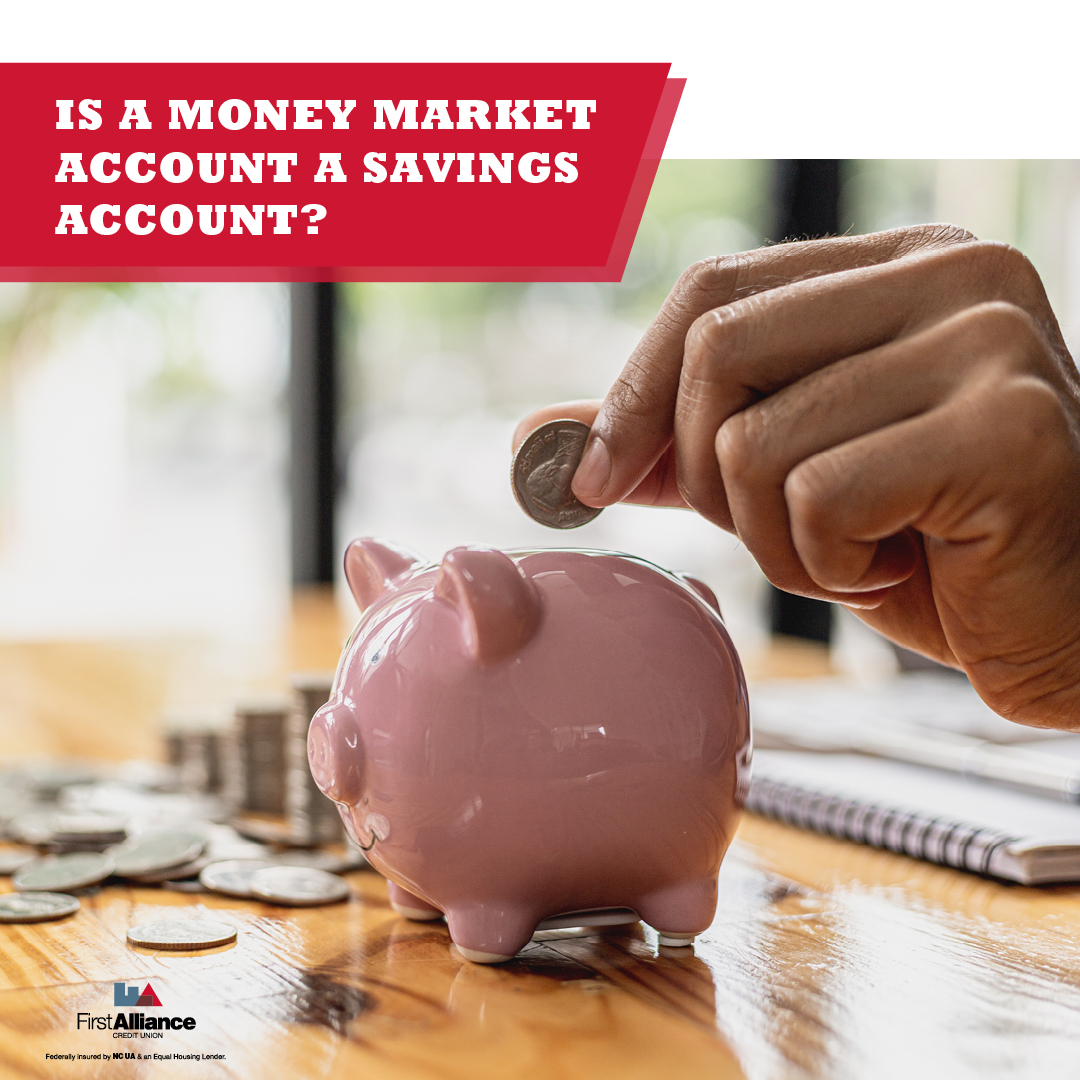Is a Money Market Account a Savings Account?
Here’s a fun challenge–visit the savings account page of a credit union’s website, including First Alliance Credit Union, and look for find money...
3 min read
 Chris Gottschalk
:
May 9, 2023 4:45:00 AM
Chris Gottschalk
:
May 9, 2023 4:45:00 AM

Almost everyone uses a savings account when they first start saving money. After you’ve been putting aside money for a few months, though, another option becomes available—certificates of deposit, better known as CDs.
A CD will give you a significantly better interest rate than a savings account. However, you won’t be able to access your money while it’s in the CD account, at least not without paying a penalty. Once the CD reaches its maturity date though, you’ll have access to the amount you deposited, as well as the interest you’ve earned.
This, of course, leads to an important question:
 The Benefits of Keeping Your Money in a Savings Account
The Benefits of Keeping Your Money in a Savings AccountPutting your money in a savings account has some huge benefits. First, there’s usually not a big minimum deposit requirement. At First Alliance Credit Union, for instance, you only need $5 to open an account.
In addition, a savings account is versatile. You can deposit money in it at any time, either directly or from your checking account. You can also withdraw money from your savings account at any time, and you can use it to save up for anything.
Most importantly, though, the money in your savings account is readily available for you during regular business hours—or at any time of day if you access your account through one of our Advisor Supported Kiosks.
When you put your money in a CD, on the other hand, you get a very different set of benefits than you get from a savings account. The biggest difference? A higher interest rate.
The interest rate you’ll get from a CD is exponentially higher than the interest rate you’ll get from a savings account. Even better, the longer the term of your CD, the higher your interest rate will be. If you're willing to keep your money in a multi-year CD, you'll be able to get the best rates.
A CD also has a more stable interest rate than a savings account. While a savings account’s interest will rise or fall depending on whether the fed raises or lowers interest rates, a CDs interest rate will stay the same until the CD matures.
Finally, a CD removes any temptation to spend money. Once you open a CD, you can’t access the money in it until the CD matures, at least not without having to pay a penalty. This is an excellent way to ensure you won’t be tempted to spend that money.
So which account is best for you? It depends entirely on your priorities.
We mentioned previously that almost everyone uses a savings account when they first start setting aside money, but a savings account is also ideal if you’ll want easy access to the money you have saved. For example, you might want to keep your emergency fund in a savings account so you can use that money if you have an emergency.
If you’re trying to save money for multiple goals at the same time, you’ll also want to keep your money in a savings account. For instance, if you’ve gotten your first career job and you want to start building up your emergency fund but you also want to save up for a newer car, you’ll want to put the money you’re saving for both of them in a savings account.
On the other hand, you'll want to think about opening a CD account if you’re saving for a specific financial goal, especially if you’ve got a fixed date in mind. These can include:
You can put your money in a CD and be able to calculate how much you’ll have when the CD matures. As an added bonus, you won’t be tempted to spend that money on anything not related to the goal you’ve set for yourself.
Having said that, there’s no rule that says you can only keep your money in a CD or a savings account. You can, and quite frankly should, use both to boost your finances and achieve your goals. You can keep your emergency fund in a savings account, for instance, and open a CD with the money you’re saving for one or more of your goals.
Savings accounts are better for short-term savings goals, as they offer easy access to funds. CDs, on the other hand, are ideal for long-term savings goals, as they typically offer higher interest rates but require locking your money away for a fixed period of time.
When you’re trying to decide whether to put your money in a CD or a traditional savings account, you’ll want to think about how you want to use the money you’ve saved. A savings account is best for people just starting to save and people putting aside money in case of an emergency, while CDs are a good idea for people saving for a financial goal. However, you can and should use both types of accounts to achieve your financial goals.
If you’d like to experience the benefits of both a CD and a savings account, become a member of First Alliance Credit Union and talk with a member advisor. They’ll help you through the process of becoming a member and answer any questions you might have about either account. You can even explore other types of savings accounts, such as a money market account or a WINcentive savings account.

Here’s a fun challenge–visit the savings account page of a credit union’s website, including First Alliance Credit Union, and look for find money...

The number one tip you hear again and again from financial experts is start an emergency fund. This typically means having money in a savings account...

If you’re starting your own small business, you’re probably familiar with the advantages a business account offers. You probably know how it can help...